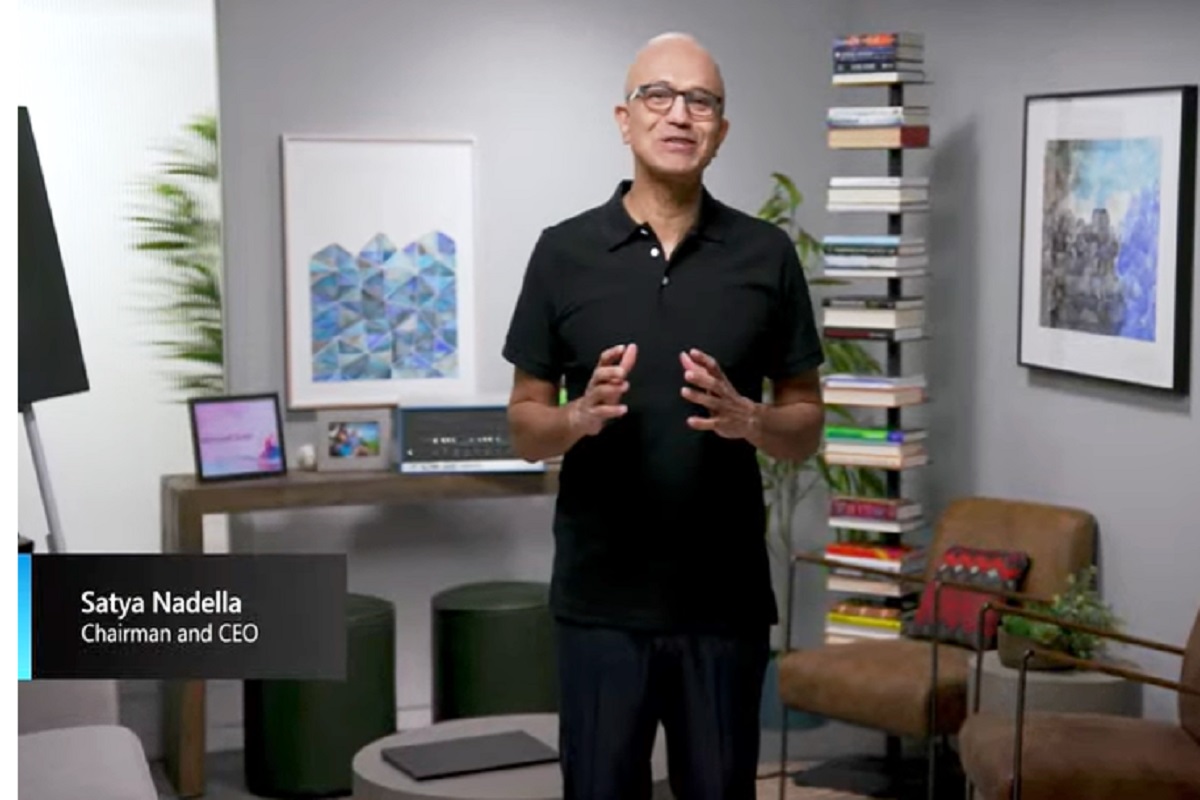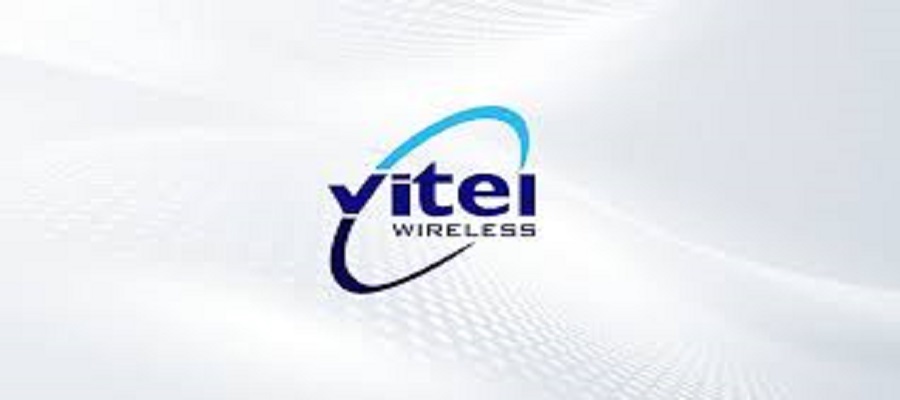Telecom
Satya Nadella Announces Microsoft’s New Technologies at Build Conference 2022

Microsoft Build Conference 2022 kicked off on Tuesday May 24 with Microsoft CEO Satya Nadella talking about ten new technologies that are “coming together as a powerful platform” to help developers.

New previews for Azure OpenAI Service, AI dashboards in Azure Machine Learning and a web application routing add-in for Azure Kubernetes Service were among the biggest Azure announcements from Microsoft during this year’s Build conference aimed at developers.
Microsoft CEO Satya Nadella also touted the company’s Azure OpenAI service during the company’s latest quarterly earnings call in April, describing how the service helps “companies like CarMax turn customer reviews into customized content for shoppers.”
He said that Azure Machine Learning’s “number of monthly inference requests increased 86 percent year over year with companies like PepsiCo using the service to predict which products are most likely to sell.”
For starters, Microsoft introduced ‘Dev Box’, its new cloud service for developers with ready-to-code workstations that allow coders to focus on work instead of workstation configurations and maintenance.
Since Dev Boxes are hosted in the Microsoft Cloud, they work on all Windows, MacOS, Android and iOS devices, and also on all major web browsers, giving developers an option to not be bound to a physical PC, and rather, “spin up a virtual machine (VM) and provision it automatically in the cloud, reducing limitations and delays,” Nadela said.
Developers using Dev Box can create a developer portal to access specific Dex Boxes for different projects.
The CEO said that Microsoft is offerings Dev Box in a private preview starting Tuesday, with the cloud service going public in the “next few months.”
Moving on, the Washington-based company unveiled its ‘Project Volterra’, a developer kit powered by an unnamed Snapdragon compute platform that will let developers explore several AI scenarios using Qualcomm’s Neutral Processing SDK for Windows toolkit.
The dev kit comes alongside a mini-desktop PC, though it won’t be available as a retail product.
From what we know so far, the mini-PC will sport three USB ports, a DisplayPort and an Ethernet port. Microsoft didn’t reveal much else about Project Volterra, though it did say that it will share more information about it at a later date.
Nadela added that Microsoft is also revamping Teams by introducing a new Live ‘Share Feature’ that will allow users to work on a shared document together in real-time, making group meetings more collaborative.
He said that developers, on the other hand, will be able to develop new collaborative software and applications inside Microsoft Teams.
Live Share is built on Fluid Framework, Microsoft’s web-based platform for interactive experiences that it debuted at 2019’s Build conference.
Some of Microsoft’s partners, including Accenture, Hexagon and Frame.io have already started building with Live Share, he said.
Microsoft Intelligent Data Platform
Azure Data chief Rohan Kumar also spoke about the Intelligent Data Platform. Kumar explained the feature promises to “fully integrate databases, analytics and governance.”
The platform is meant to speed up the process of turning data from disparate sources into actionable intelligence.
Microsoft also launched the MySQL Flexible Server ‘Business Critical’ which presupposes that the old “Memory Optimized” tier for the Azure Database for MySQL Flexible Server product is no more.
“As of Build, it’s now called the “Business Critical” tier. New capabilities include “1.5x faster performance than Azure Database for MySQL Single Server deployment,” the company said.
Telecom
Airtel’s AI Spam Alert Flags 9.6m Spam Attempts

Airtel Nigeria, telecom service provider, has announced that its AI-powered Spam Alert Service issued over 9.6 million spam alerts between March 13 and May 20, 2025.

As part of its ongoing commitment to protecting customers from unwanted and potentially fraudulent communications, Airtel designed the AI Spam Alert service to analyze traffic patterns and detect anomalies.
In the period since launch the AI pinpointed a total of 9,667,008 SMS as potential spam messages in the two months after its launch.
Of these, the system identified 528,080 on-net (Airtel-to-Airtel) and 9,138,928 off-net (from other networks) numbers as suspected spam messages, demonstrating the scale of the threat and Airtel’s advanced processing capability.
Airtel Nigeria is a subsidiary of Airtel Africa.
Commenting on this development, Dinesh Balsingh, CEO, Airtel Nigeria, restated Airtel`s commitment to protecting its customers.
“This milestone demonstrates the strength of our AI-driven infrastructure in combating the growing menace of spam and scam calls. At Airtel Nigeria, we are focused on connecting Nigerians and ensuring their safety and confidence while using our network.
“We understand that trust is the cornerstone of digital communication. That’s why we’ve invested heavily in intelligent systems that not only detect potential threats but also learn and evolve with data. As threats become more sophisticated, so will our solutions. As a company, we remain focused on leading the industry in innovation and customer satisfaction, ensuring that every Nigerian can enjoy a safer and smarter digital experience,” Mr. Balsingh said.
The Spam Alert Service is part of Airtel Nigeria’s broader strategy to integrate artificial intelligence into its core offerings to deliver smarter and safer experiences for its customers across the country.
Recall that the Spam Alert Service was launched on March 13, 2025. A groundbreaking and free solution from Airtel, it notifies users in real-time of suspected spam SMS messages by analyzing over 250 parameters.
The Airtel AI Spam Alert Service is available to all Airtel subscribers on smartphones and feature phones.
Telecom
Vitel Wireless Completes Interconnectivity with all Major Telcos in Nigeria

Vitel Wireless Limited, pioneer mobile virtual network operator (MVNO) in Nigeria has made another history by announcing the successful completion of interconnectivity with all major Mobile Network Operators (MNOs) in Nigeria.

Kenneth Nwabueze, Chairman and CEO of Vitel Wireless
Recall that Vitel Wireless, became the first Mobile Virtual Network Operator to receive a dedicated number series (0712) from the Nigerian Communications Commission (NCC).
This breakthrough enables Vitel Wireless subscribers to make and receive calls with users on MTN Nigeria, Airtel Nigeria, Globacom (Glo), and 9mobile Nigeria.
It also marks the first time an MVNO in the country has successfully interconnected with all the major MNOs, setting a new precedent for Nigeria’s telecom sector.
Following the NCC’s licensing of 46 MVNOs, Vitel Wireless continues to lead the way in establishing a dynamic MVNO sector in Nigeria—Africa’s largest market and most populous nation.
The company has already achieved several historic firsts: the first MVNO issued a numbering plan and national and international routing codes, the first to launch a location awareness network in Africa, and the first to unveil a strategic nationwide rollout plan.
“We are gathering momentum for our big launch,” said Kenneth Emeka Nwabueze, chairman and CEO of Vitel Wireless.
“We are proud to be showing what’s possible for MVNOs, while also creating a path for others to follow. By leveraging our years of experience in Nigeria’s telecom industry, we are opening up new possibilities where there used to be none.”
Interconnectivity was achieved through a combination of direct fiber connections with some MNOs and indirect routing via third-party providers.
This milestone was the result of a collaborative effort involving engineers from Vitel Wireless, Wireless Technology Labs (WTL), and Interconnect Clearinghouse Nigeria (ICN), working closely with engineers from MTN, Airtel, Glo, and 9mobile.
“We wish to thank the regulatory agency, the Nigerian Communications Commission, for their timely interventions and guidance, which were instrumental in achieving this interconnectivity and bringing the formal launch of the Vitel Wireless nationwide network one step closer to reality,” said Nwabueze.
The company entered a nationwide pilot phase in May 2025, with plans for a full rollout in July 2025, aiming to deliver next-generation mobile services to millions across Nigeria.
Telecom
Layer3 Wins Big at African Beacon of ICT Awards 2025

Layer3 Limited, One of Nigeria’s foremost ICT solutions providers, has once again solidified its place as a trailblazer in Africa’s technology landscape, emerging as the Enterprise Solutions Provider of the Year and Leadership Award in Cloud Services at the prestigious African Beacon of ICT Leadership and Awards held on May 24, 2025, at the Four Points by Sheraton, Lagos.

This year’s event brought together leading tech innovators, policymakers, and thought leaders to recognize organizations making extraordinary contributions to Africa’s digital transformation.
Among the many luminaries in attendance, Layer3 stood out for its 19+ years of consistent innovation, technical excellence, and client-centered service delivery.
Speaking at the event, the organizers praised Layer3’s pioneering work in delivering robust enterprise solutions across sectors, as well as its bold leadership in advancing cloud infrastructure and services across Nigeria and beyond.
“These awards are more than recognitions, they are a reminder of the fulfilment to our mission to deliver peace of mind to our customers,” said David Ita, the Head of Strategy and Business Development of Layer3.
“They speak to the impact we’ve made and the promise we hold for the future of the cloud and enterprise technology business in Africa. We dedicate this honor to our clients, partners, and the hardworking Layer3 team who continue to redefine excellence every day.”
Since its founding, Layer3 has championed a future-forward approach to ICT services offering cutting-edge solutions in enterprise networking, cybersecurity, broadband, cloud computing, managed services, and IT advisory. The company’s Layer3Cloud platform and managed service offerings continue to power the digital ambitions of Nigeria’s leading businesses.
These accolades underscore Layer3’s unwavering commitment to driving transformation and supporting digital economies through smart, secure, and scalable technology.

 E-Business2 days ago
E-Business2 days agoNigeria Launches Cybercrime Team with Commonwealth, UK Support

 Telecom2 days ago
Telecom2 days agoTelecom Subscribers Decline By 43m in One Year

 Telecom2 days ago
Telecom2 days agoNCC Orders Telcos to Compensate Subscribers for Outages More than 24 Hours

 E-Financial2 days ago
E-Financial2 days agoSERAP Drags CBN to Court over Alleged Failure to Disclose LG Allocations

 General News2 days ago
General News2 days agoHEDA Sues FG, Oil Giants over Alleged Unlawful Oil Licence Transfer

 Telecom2 days ago
Telecom2 days agoIHS Nigeria, NSCDC Partner to Protect Telecoms Infrastructure

 Telecom1 day ago
Telecom1 day agoEngr. Ikechukwu Nnamani Receives Two Prestigious @ABoICT Awards

 Telecom1 day ago
Telecom1 day agoFG to Deploy 80 Percent of 7000 Telecom Towers to North
















